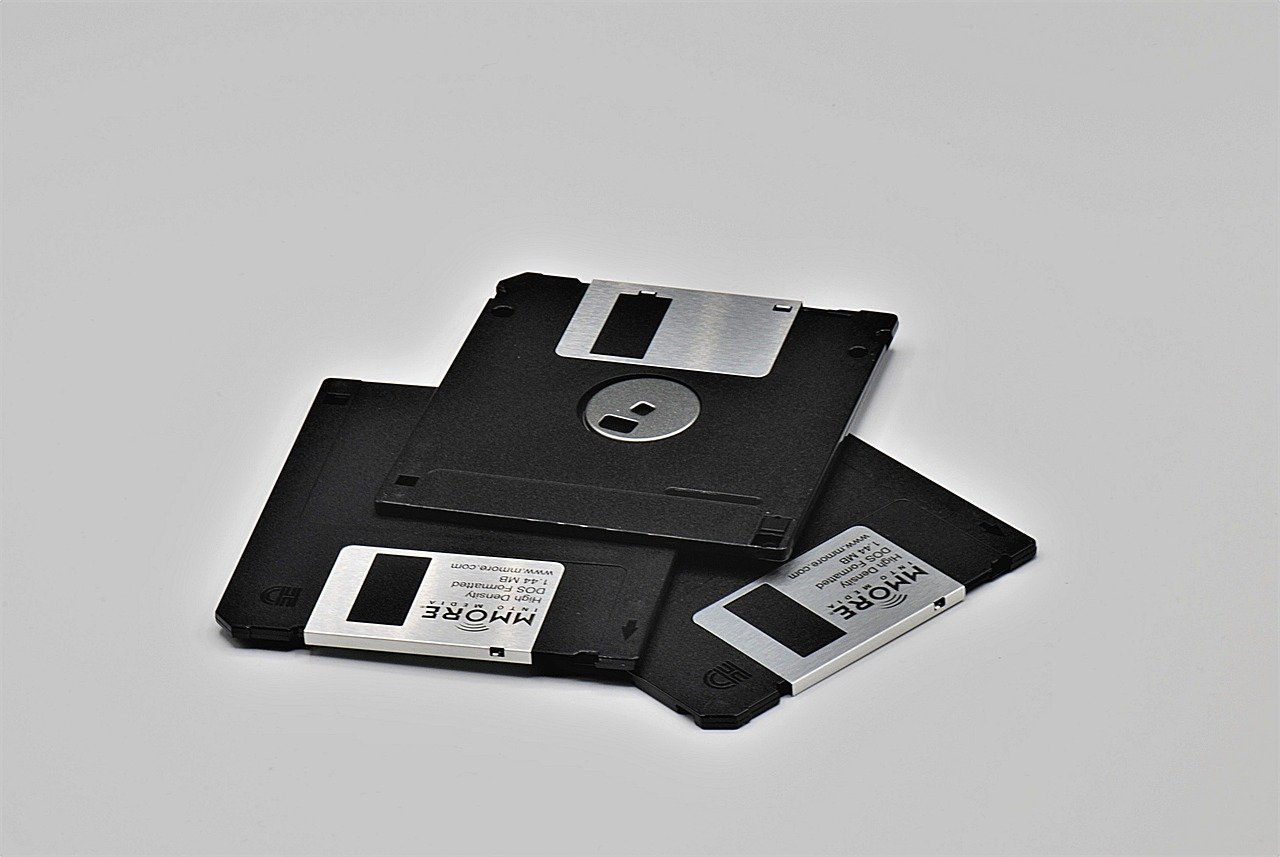How Do I Clean Up My Computer’s Hard Drive?

Maintaining a Hard Drive clean and organized hard drive is essential for optimal computer performance. Here, we provide a comprehensive guide on how to effectively clean up your computer’s hard drive.
Assessing Your Hard Drive’s Current State
Before starting the cleanup process, it’s important to understand the current state of your hard drive. Use a disk analyzer tool to identify which files and folders are taking up the most space. Disk analyzers provide a visual representation of your hard drive’s contents, making it easier to spot large and unnecessary files.
Uninstall Unnecessary Programs
One of the quickest ways to free up space on your hard drive is to uninstall programs you no longer use. Navigate to the Control Panel in Windows or the Applications folder in macOS, and review your list of installed programs. Remove any applications that you haven’t used in the last six months.
Steps to Uninstall Programs on Windows:
- Open the Control Panel.
- Select Programs > Programs and Features.
Steps to Uninstall Applications on macOS:
- Open the Finder.
- Go to the Applications folder.
Delete Temporary and Junk Files

These include system cache, log files, and internet history.
For Windows Users:
- Type
tempand press Enter. - Select all files in the folder and delete them.
For macOS Users:
- Open Finder.
- Type
~/Library/Cachesand press Enter. - Select all files and delete them.
Use Disk Cleanup Tools
Both Windows and macOS offer built-in tools to help clean up your hard drive.
Windows Disk Cleanup:
- Open File Explorer.
- Right-click on the drive you want to clean, typically
C:. - Select Properties > Disk Cleanup.
macOS Disk Utility:
- Open Finder.
- Select your hard drive and click First Aid to scan and repair the disk.
Organize and Delete Duplicate Files
Duplicate files can take up a considerable amount of space on your hard drive. Use a duplicate file finder tool to scan your hard drive and remove redundant files.
Archive or Delete Old Files
Old files, such as documents, pictures, and videos that you no longer need, should be archived or deleted. Consider moving these files to an external hard drive or a cloud storage service to free up space on your main drive.
Tips for Archiving:
- Create a Backup: Always back up important files before deleting or archiving them.
- Use External Storage: Transfer large files to an external hard drive.
- Cloud Storage: Use services like Google Drive, Dropbox, or OneDrive to store files online.
Manage Your Downloads Folder
The Downloads folder often contains files that are no longer needed after their initial use. Periodically go through this folder and delete any files you no longer need.
Clean Up Your Desktop
A cluttered desktop can slow down your computer’s performance. Move files and folders from your desktop to more appropriate locations within your hard drive.
Disable Hibernation on Windows
Hibernation files can consume a significant amount of space on your hard drive. Disabling hibernation will delete the hibernation file.
Steps to Disable Hibernation:
- Open Command Prompt as an administrator.
- Type
powercfg -h offand press Enter.
Empty the Recycle Bin or Trash
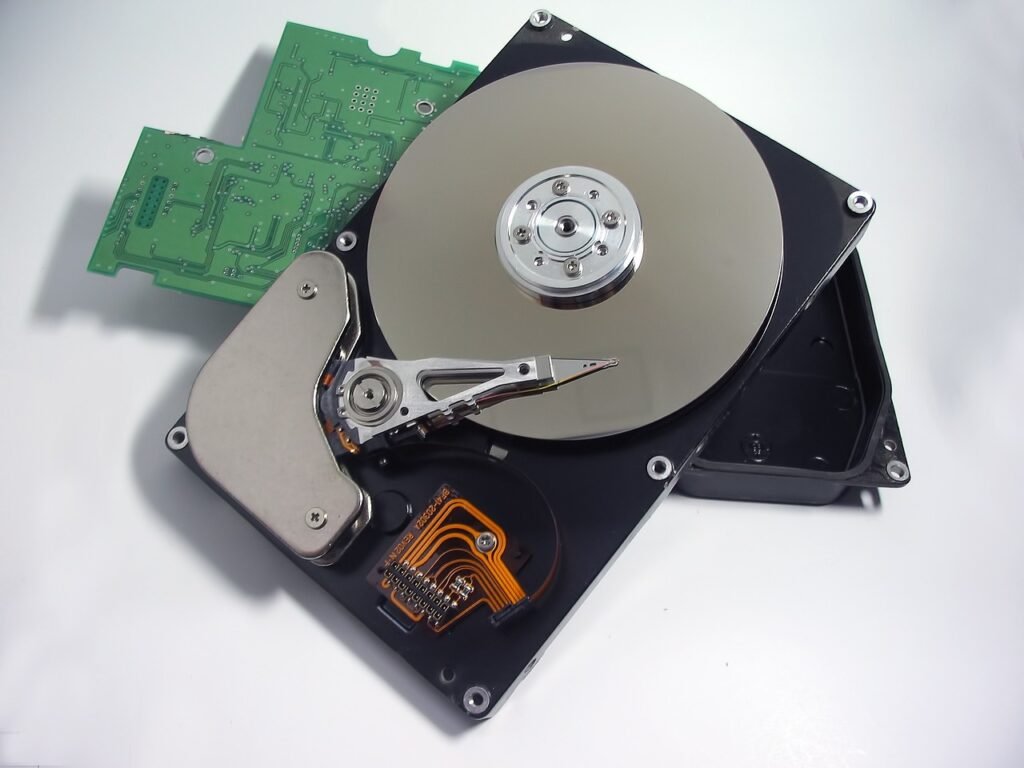
Files in the Recycle Bin (Windows) or Trash (macOS) still occupy space on your hard drive. Make it a habit to empty these bins regularly.
- Select Empty Recycle Bin.
Steps to Empty the Trash on macOS:
- Right-click the Trash icon in the dock.
- Select Empty Trash.
Defragment Your Hard Drive
Defragmenting your hard drive can improve your computer’s performance by reorganizing fragmented data.
Steps to Defragment on Windows:
- Open File Explorer.
- Right-click on the drive you want to defragment, typically
C:. - Select Properties > Tools > Optimize.
Note: macOS automatically manages disk defragmentation, so this step is not necessary for Mac users.
Perform a Full System Scan
Run a full system scan using your antivirus software to ensure there are no malware or viruses that could be affecting your computer’s performance.
Regular Maintenance Tips
- Schedule Regular Cleanups: Set a reminder to clean up your hard drive monthly.
- Automate Tasks: Use software tools to automate the cleanup process.
- Keep Software Updated: Regularly update your operating system and applications to ensure they run efficiently.
Backup Important Files
Use an external hard drive, network-attached storage (NAS), or cloud services for backing up important files.
External Hard Drive Backup:
- Use backup software (e.g., Windows Backup and Restore, Time Machine on macOS) to create a backup of your files.
Cloud Backup Services:
- Sign up for a cloud backup service like Google Drive, Dropbox, or OneDrive.
- Configure the client to automatically back up your important files.
Optimize Startup Programs
Review and disable unnecessary programs that start when your computer boots.
Managing Startup Programs on Windows:
- Go to the Startup tab.
- Review the list of programs and disable any unnecessary ones by right-clicking and selecting Disable.
Managing Startup Programs on macOS:
- Open System Preferences.
- Select Users & Groups.
- Click on your user account, then select Login Items.
- Review the list and remove any unnecessary items by selecting them and clicking the minus (-) button.
Update Your Operating System and Software
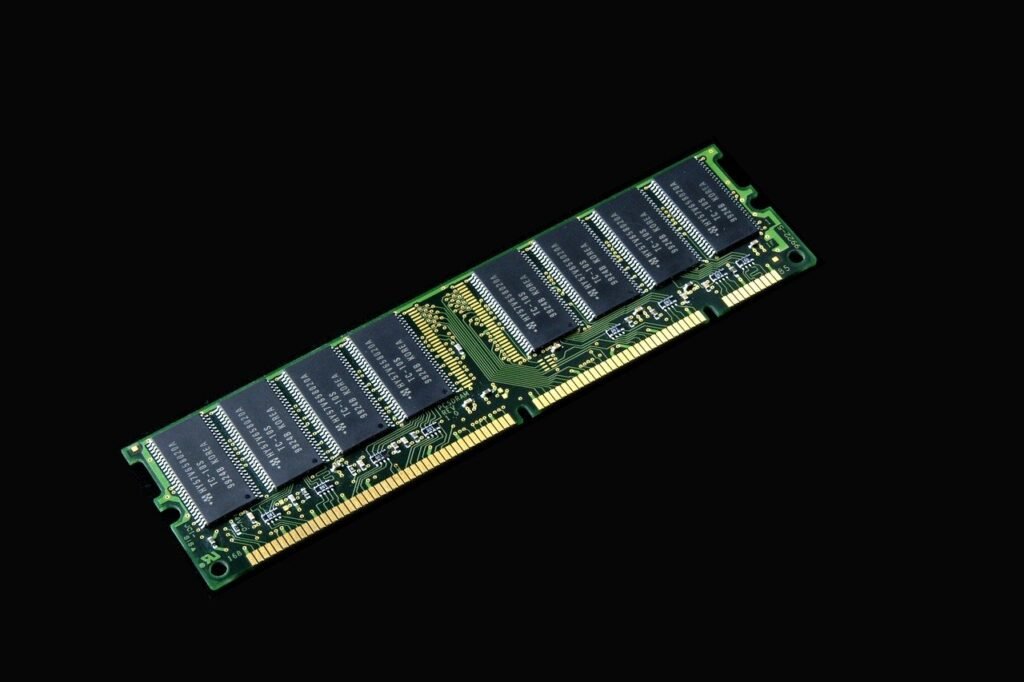
Updating macOS:
- Open the App Store.
- Go to the Updates tab.
- Install any available updates.
Use an SSD for Better Performance
SSDs are significantly faster than HDDs and can greatly improve your computer’s performance.
Steps to Upgrade to an SSD:
- Purchase a compatible SSD for your computer.
- Replace the old hard drive with the new SSD in your computer.
Clear Browser Cache and Cookies
Clearing your browser cache and cookies can free up space and improve your browsing experience.
Clearing Cache and Cookies on Google Chrome:
- Open Chrome.
- Click Clear data.
Clearing Cache and Cookies on Safari:
- Open Safari.
- Click Remove All and confirm.
Remove Large and Unused Files
Large files such as videos, ISO files, and software installers can take up substantial space on your hard drive. Periodically review your files and delete any that are no longer needed.
Finding Large Files on Windows:
- Open File Explorer.
- Use the search bar to find large files by typing
size:>1GB.
Finding Large Files on macOS:
- Open Finder.
- Use the search bar to find large files by selecting This Mac and then clicking the + button.
- Set the search criteria to File Size and is greater than a specified size.
Use Third-Party Cleaning Tools
There are various third-party cleaning tools available that can help you manage your hard drive more efficiently. Some popular options include CCleaner, CleanMyMac, and BleachBit.
Using CCleaner on Windows:
- Download and install CCleaner.
- Analyze your system and run the cleaner to remove unnecessary files.
Using CleanMyMac on macOS:
- Download and install CleanMyMac.
- Open CleanMyMac and run a scan.
- Review the results and clean up your system.
By implementing these additional strategies, you can ensure that your computer’s hard drive remains clean, organized, and efficient. Regular maintenance and mindful management of files and programs will help maintain optimal performance and extend the lifespan of your computer.
Manage System Restore Points
System Restore points can be a lifesaver in case of system issues, but they also take up significant space on your hard drive. Managing these points ensures that you have enough space without compromising your ability to restore your system if needed.
Managing System Restore Points on Windows:
- Open Control Panel.
- Go to System and Security > System.
- Select your system drive (typically
C:) and click Configure. - Adjust the Max Usage slider to limit the amount of space used for System Restore points.
- Click Delete to remove all but the most recent restore point if you need to free up space immediately.
Disable System Restore if Necessary
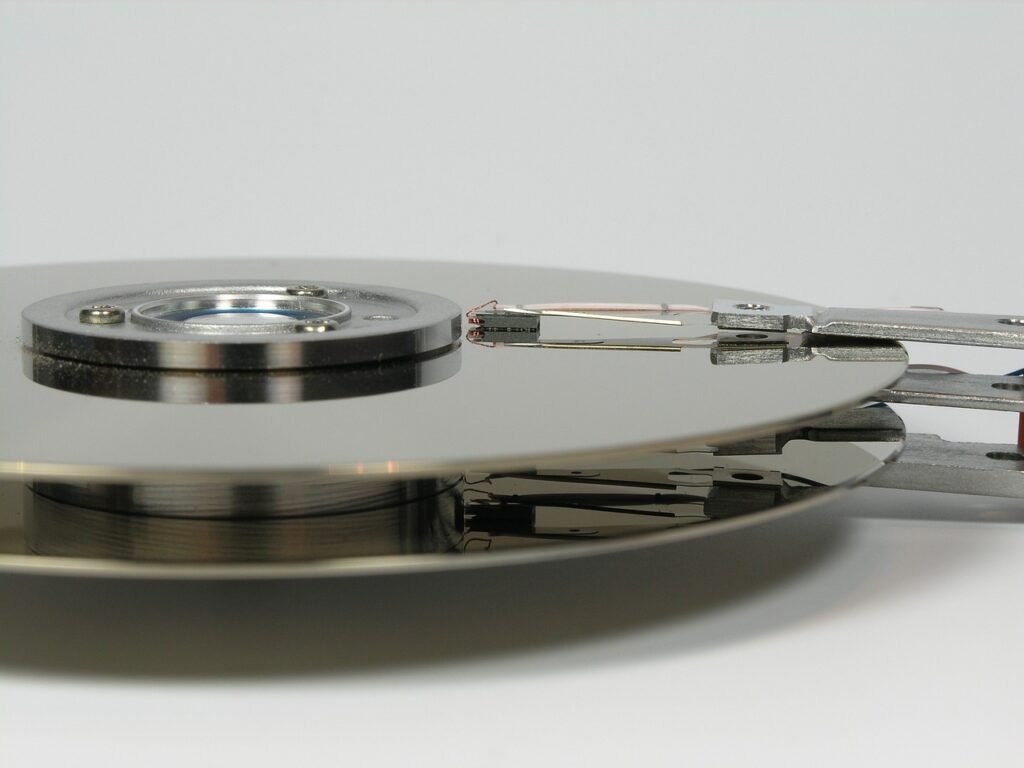
While not generally recommended, disabling System Restore can free up significant space if you’re confident in your system’s stability and other backup methods.
Disabling System Restore on Windows:
- Open Control Panel.
- Go to System and Security > System.
- Select your system drive and click Configure.
Optimize Virtual Memory (Paging File)
Virtual memory, also known as the paging file, is used when your physical RAM is full. Adjusting its size can sometimes help free up hard drive space and improve performance.
Optimizing Virtual Memory on Windows:
- Open Control Panel.
- Go to System and Security > System.
- In the Performance section, click Settings.
- Select Custom size and set the initial and maximum sizes according to your system’s needs.
- Click Set and then OK.
Monitor Disk Space Usage Regularly
Keeping an eye on your disk space usage can help you identify and address potential issues before they become significant problems. Use built-in tools and third-party applications to monitor your hard drive’s status regularly.
Using Built-in Tools on Windows:
- Open File Explorer.
- View the General tab to see the used and free space.
Using Built-in Tools on macOS:
- Go to the Storage tab to view your disk usage.
Enable Storage Sense on Windows
Storage Sense is a built-in feature in Windows 10 and later that helps you manage your disk space automatically by deleting unnecessary files.
Enabling Storage Sense:
- Open Settings.
- Go to System > Storage.
- Toggle the Storage Sense switch to On.
Enable Optimize Storage on macOS
macOS offers a similar feature called Optimize Storage, which helps manage disk space by storing files in iCloud and removing old files and unused apps.
Enabling Optimize Storage:
- Go to the Storage tab and click Manage.
- Select Store in iCloud, Optimize Storage, Empty Trash Automatically, and Reduce Clutter to enable these options.
Clean Up Old System Updates
Old system updates can take up a considerable amount of space. Cleaning these up can free up significant disk space.
Cleaning Up Windows Update Files:
- Open Settings.
- Go to System > Storage.
- Click on Temporary files.
Check for Large Hidden Files
Sometimes, large hidden files can consume a lot of disk space. Use file explorers that can reveal hidden files to identify and manage them.
Showing Hidden Files on Windows:
- Open File Explorer.
- Click on the View tab.
Showing Hidden Files on macOS:
- Open Finder.
- Press
Command + Shift + .
Remove System Restore Data on macOS

Time Machine backups made locally on your Mac can take up space. Deleting these local snapshots can free up space.
Removing Time Machine Local Snapshots:
- Open Terminal.
- Type
tmutil listlocalsnapshots /and press Enter to list the snapshots.
By following these additional tips and maintaining regular cleanup habits, you can ensure that your computer’s hard drive remains in top condition. Keeping your system free of unnecessary files, managing your programs, and regularly backing up important data will lead to improved performance and a longer lifespan for your device. and a longer lifespan for your device.
Frequently Asked Questions (FAQs)
1. Why is it important to clean up my computer’s hard drive?
Regularly cleaning up your hard drive is crucial for maintaining optimal computer performance. It helps to free up space, speed up your system, reduce the risk of data corruption, and ensure that your computer runs efficiently.
2. How often should I clean up my hard drive?
It’s a good practice to clean up your hard drive at least once a month. However, if you frequently download large files, install new programs, or notice a decrease in performance, you may need to clean up more often.
3. What are the best tools for cleaning up a hard drive?
Some of the best tools for cleaning up your hard drive include built-in utilities like Disk Cleanup (Windows), Disk Utility (macOS), and third-party applications such as CCleaner, CleanMyMac, and BleachBit.
4. Can I clean up my hard drive without using third-party software?
Yes, you can clean up your hard drive using built-in tools on your operating system. Windows offers tools like Disk Cleanup and Storage Sense, while macOS provides Disk Utility and Optimize Storage.
5. What are temporary files, and why should I delete them?
Temporary files are created by the operating system and applications for various purposes, such as caching, backups, and session data. Deleting them helps free up space and improve performance.
6. Is it safe to delete duplicate files?
Yes, it’s safe to delete duplicate files as long as you are sure they are exact duplicates. Using a duplicate file finder tool can help you identify and safely remove redundant files, freeing up valuable space.
7. How do I know which files are safe to delete?
Files that are typically safe to delete include temporary files, cache files, duplicate files, old downloads, and files in the Recycle Bin or Trash. Always review files before deleting them to ensure they are not needed.
8. What should I do if my hard drive is still full after cleaning?
If your hard drive is still full after cleaning, consider moving large files to an external hard drive or cloud storage, uninstalling unused programs, and upgrading to a larger-capacity hard drive or SSD.
9. How can I prevent my hard drive from getting cluttered in the future?
To prevent your hard drive from getting cluttered, regularly delete unnecessary files, uninstall unused programs, use cloud storage for large files, and enable automated cleaning tools like Storage Sense (Windows) or Optimize Storage (macOS).
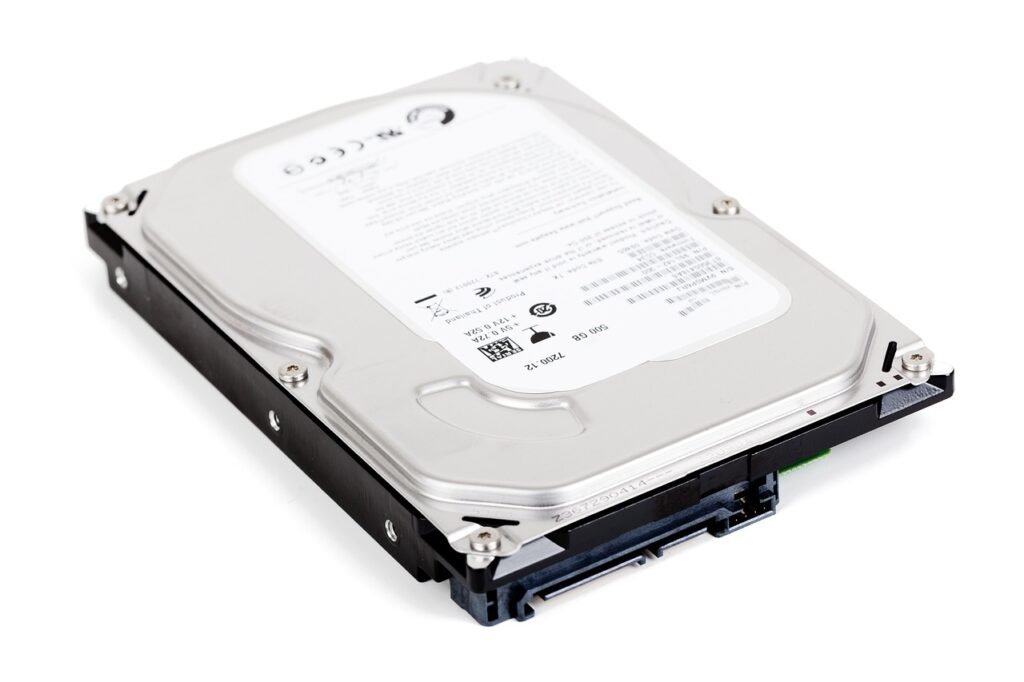
10. Will cleaning up my hard drive improve my computer’s speed?
Yes, cleaning up your hard drive can significantly improve your computer’s speed. Removing unnecessary files, optimizing storage, and ensuring enough free space can enhance system performance and reduce lag.
How to Optimize Your Computer’s Performance: Expert Tips
How Can I Use a VPN to Secure My Internet Connection?



